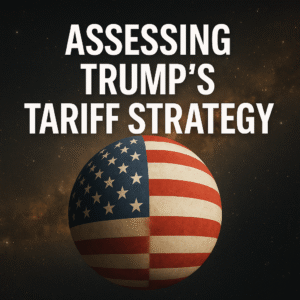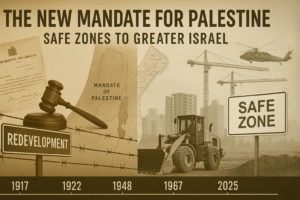Geopolitical Briefing: Egypt
— 23 August 2025
- Hamas has accepted a 60‑day Gaza ceasefire and hostage exchange proposal mediated by Egypt and Qatar, marking a pivotal diplomatic advance.
- Israel is reviewing the new truce offer but retains its hardline stance; domestic protests in Israel are amplifying pressure on Prime Minister Netanyahu.
- Turkey’s Foreign Minister visited Cairo this week to coordinate regional strategy and support for the ceasefire process.
- Egypt’s stock market, the EGX, cooled from recent highs—slipping steadily amid foreign and regional selling.
- Chinese investment surged with the $1 billion Sailun tyre factory deal in the Suez Canal Economic Zone progressing toward implementation.
Egypt’s diplomatic role intensified as Hamas formally accepted a renewed ceasefire and hostage‑release proposal—negotiated in Cairo alongside Qatari counterparts—with about 98% alignment to the prior U.S. draft. The deal outlines a 60‑day truce, the release of roughly half the remaining hostages, reciprocal prisoner exchanges, and expanded humanitarian aid access. Israel has acknowledged receiving the proposal but has yet to endorse it fully. [(Axios, The Guardian, EgyptToday, Reuters)]
Inside Israel, mounting public dissent—reflected in mass protests—has begun to challenge Netanyahu’s unyielding position. Whether this internal pressure derails or accelerates a diplomatic breakthrough remains to be seen. [(The Guardian, Reuters)]
Amid this, Egyptian efforts were bolstered by Turkey’s high-profile diplomatic outreach: Turkish Foreign Minister Hakan Fidan visited Cairo to buttress regional support for the ceasefire and align strategies across Gaza, Libyan, and broader African issues. [(Reuters)]
Economic indicators reflect the geopolitical backdrop: the EGX30 index, having peaked recently, slipped through the week—down about 0.3–0.8%—as foreign and Arab investors retreated. Trading volumes tapered, and sectoral performance showed modest weaknesses. [(EgyptToday)] This dip, while not drastic, signals cautious investor sentiment amid regional uncertainty.
On the investment front, Egypt continues to cement its strategic partnership with Beijing. The $1 billion Sailun tyre plant in the Suez Canal Economic Zone is proceeding on schedule, targeting up to 10 million tyres annually by 2026. This infrastructure deepens Egypt’s manufacturing base and reduces reliance on Western capital channels. [(Business Today, Reuters)]
In each development, Cairo reasserts its pivotal position in regional diplomacy and trade navigation. By brokering a ceasefire that hinges on Egyptian mediation, it preserves leverage against U.S./Israel proposals that might bypass its influence. Simultaneously, the shift toward Chinese industrial investment amplifies its economic autonomy and detachment from Western dependencies. Market fluctuations, though moderate, underscore the importance of domestic stability to sustain sovereignty over policy and infrastructure, even as foreign financial sentiment remains volatile.


